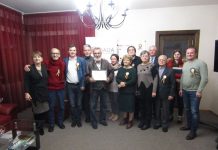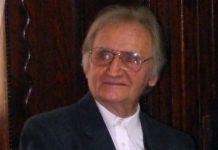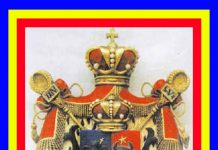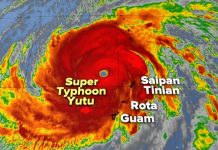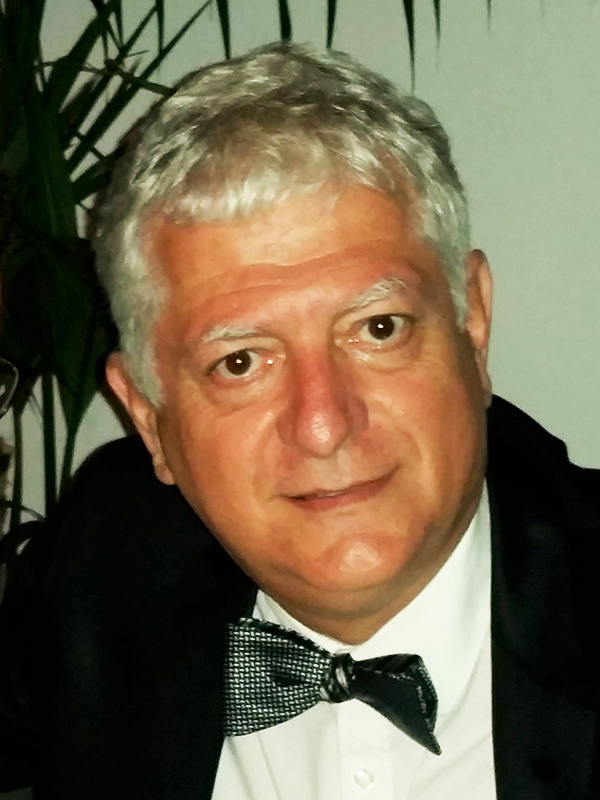Popularitatea crescândă a studiilor despre EMIL CIORAN în mediile academice din lumea vestică (Daniel Ioniță. Rășinari – Sibiu – 11 mai 2019)
De ce, parcă din senin, a devenit Emil Cioran – (1911-1995, filozof român stabilit la Paris după al doilea război mondial, promovator al disperării și nihilismului, al naturii umane fără speranță în opinia lui), scrierile lui, viziunea lui despre lume – atât de populară în cercurile academice ale vestului, în universități, în studiile doctorale din America, Australia, Canada, Marea Britanie – părți ale lumii anglo-saxone (cu care sunt familiar)? Pentru noi românii care trăim în afara țării, acest lucru este palpabil. Sunt cel puțin câteva lucrări de doctorat în Australia pe tema scrierilor lui Cioran în contextul geopolitic curent. In urmă cu 10 ani nu era nici una.
Pentru că numele meu și locul nașterii (București, România) se află în baza de date al uneia din universitățile australiene – fiind lector și conducător de lucrări (chiar dacă nu în domeniul filosofiei ci al Comerțului), am început să primesc întrebări despre Cioran… Și a trebuit să fac două lucruri
1. Să citesc Cioran. Să văd ce a vrut (plecat din Romania in 1980 la 20 de ani,
nu fusesem expus la ideile lui, deși știam despre el.)
2. Să înțeleg de ce a devenit Cioran aproape peste noapte atât de interesant, pentru ca programe doctorale din universități din îndepărtata (de Europa) Australie, dar și USA și Marea Britanie, să dorească să-i cerceteze scrierile.
3. In mod mai specific, ce interes reprezintă Emil Cioran și viziunea lui în relație cu situația geopolitică din ultimii ani, care face ca studenți de doctorat in domeniul filosofiei, dar, și asta mi se pare interesant, al studiilor de politică internațională – să dorească să-l înțeleagă, să-l aprofundeze ?
Înainte de a răspunde la aceste întrebări, trebuie să distilez în sumar
viziunea lui Cioran despre lume și viață, sau cel puțin înțelegerea mea. Îmi
cer de la început iertare specialiștilor care i-au studiat lucrările în
profunzime. În mod necesar – am încercat să ajung la ideile de bază, și sunt
sigur că am unghiuri moarte – dar în contextul curent – nu asta e important.
Fiindcă nu prezint aici viziunea mea, ci o explicație a interesului cadrelor
universitare și studenților care-l caută acum pe Cioran.
In esență Emil Cioran nu este deloc convins că problemele, crizele esențiale ale omenirii în decursul istoriei, și mai ales cele contemporane cu care era familiar (WW2, Nazismul, Stalinismul, criza potențialei distrugeri planetare datorită bombei atomice etc) – Nu credea ca toate acestea se datoreaza vreunei ideologii sau a alteia, vreunor vederi politice sau filosofice X sau Y – cu alte cuvinte printr-o explicație sistemică. Mai degrabă, concluzionează Cioran, marele vinovat al relațiilor tensionate dintre oameni, diferite grupuri de interese, națiuni chiar, lipsa de empathie, de a lua în considerație în mod constant și interesele celuilalt – toate acestea se datorează în mod simplu naturii umane inerent îndreptate spre distrugerea de sine – egoiste, al unui „păcat originar” zice el , cu toate că nu era de loc religios.
Bomba atomică, scrie Cioran, nu este rezultatul primar al evoluției științifice. Este mai degrabă rezultatul normal, logic, al naturii umane, al faptului că omul se auto-distruge încă de la naștere. Cioran consideră societatea liberă, liberală, democratică – ca pe o aberație de scurtă durată, care curând se va transforma în echilibrul mult mai durabil al unei dictaturi, al unui totalitarianism, al „dictaturii sabiei”. Iar acum în 2019, cand vedem descreșterea rapidă a libertăților în lumea „progresivă” vestică e greu să argumentăm împotriva vederii cioraniene în acest domeniu (în ciuda motivelor raționalizante ce for fi date pentru această descreștere – drepturile minorităților, anti-discriminarea etc – motive pe care Cioran le-ar ataca în mod vehement).
Pentru Cioran problema nu sunt nici Comuniștii (pe care-i disprețuia), nici Naziștii, nici Mao, și nici pozițiile ideologice diferite ale acestora – acestea nu sunt decât prétexte. Nici liberalismul capitalist, sau „poziția progresistă” a stângii, nu prezintă, după Cioran, mai multă credibilitate pe termen lung. De ce? Fiindcă, după Cioran nu contează ceea ce credem, sau credem că credem – fie că suntem cu religie, fără religie, comuniști, capitaliști, social progresiști, naziști etc. Pentru el problema nu este una de sistem, nu este o problemă sistematică, de program sau de ideologie mai mult au mai puțin bine definită și/sau aplicată. Ci problema se află în interiorul fiecăruia din noi, în natura noastră umană – aplecată spre distrugerea de sine, thanatosul lui Freud.
Fast-forward la ultimile două decenii. După 11 Septembrie 2001, am avut războaiele din Golf, Ruanda și genocidul de acolo, avem acum Yemen (unde au murit deja aproape la fel de mulți ca-n Ruanda, dar nimănui nu-I pasă), avem Sudanul, avem problema Orientului Mijlociu (la care nimeni nu mai vede o soluție – o poziție foarte Cioraniană de altfel), avem distrugerea unor țări precum Siria, Egipt, Libia. Iar în minunatul Vest, luminat și plin de libertate, avem un sistem politic, cel America – cu Democrații, găunoși MORAL, și cu un președinte egomaniac și periculos, iar in Europa avem parte de o dezmembrare (BREXIT) de valuri uriașe de imigrare dinspre Africa și Asia – care au început să ducă la radicalizarea spre extrema dreaptă (foarte periculoasă) a unei părți crescânde a populațiilor europene – de la Ungaria, la dominația dreptei în Italia, la problemele din Austria, la Franța etc.
Apoi avem problema Chinei. Am lăsat-o la urmă pentru că este probabil cea ma gravă – ținând cont de escaladarea, tensionarea relațiilor Chinei cu vecinii, și în special cu cealaltă mare putere, Statele Unite, și de asemenea revenirea Chinei la un totalitarianism feroce cu persecuții drastice a oricărei forme de disidență, fie politică, etnică sau religioasă. China este convinsă că acest secol va fi, sau a început déjà să fie – secolul Chinez.
Dacă Cioran ar fi azi în viață ar fi exclamat poate „Păi nu v-am spus ?” Sau poate nu ar fi exclamat, ar fi fost de ajuns o privire penetrantă tipică a lui – ca să ne dăm seama ce gândește… În acest context – anumiți academici, ici și colo, au început să caute răspunsuri dincolo de dogme, de même și ideologii, de programe sociale, de teoria sistemelor– și l-au descoperit astel pe Emil Cioran – care, de pe paginile sumbre ale scrierilor sale – abordează problema din punctul de vedere al naturii omenești, și al propensității, dispoziției acesteia spre autodistrugere, pentru care nu vede o soluție.
Sigur, Cioran nu este primul care o face, dar este poate cel mai elocvent, și cel mai coerent. Textele sacre – Biblia ne spune că, citez „Inima omului este nespus de înșelătoare și de deznădăjduit de rea. Cine poate s-o cunoască?”. Ca o paranteză aici, fiindcă am amintit de Biblie, Cioran nu este religios, deși nu este nici pe de-a-ntregul ateu. Cioran nu abordează o soluție, fiindcă sincer fiind, nu vede o soluție. Din perspectiva noastră, a mea, cea creștină – eu văd o soluție. Tocmai datorită acestei naturi umane care este gata să apese butonul autodistrugerii (personale ca și la scară largă a planetei) în orice moment – Dumnezeu s-a întrupat și a devenit om, pentru a ne arăta calea divina a altruismului, a sacrificiului de sine, a iubirii adevărate față de aproapele, față de Dumnezeu, față de noi înșine. Închid paranteza.
Concluzia interesului academic crescând (și de la universități la politicieni și la media este numai un pas) pentru Cioran este tocmai această realizare că, e posibil ca Cioran să fi avut dreptate. Că problemele omenirii la nivel geopolitic se datorează în principal nu sistemelor și ideologiilor, ci a naturii umane.
Pentru Cioran, sistemele, ideologiile, partidele politice, guvernele – sunt simple elemente de raționalizare. Nu sunt raționale, ci simple raționalizări ale unor instincte egoiste, ale răului, ale auto distrugerii. Cel puțin aceasta este ceea ce am găsit, meditând la crescânda popularitate a studiilor scrierilor lui Emil Cioran în universitățile din lumea vestică, din țările dezvoltate.
***
WHY EMIL CIORAN?- Between Confusion and Despair – A FEW THOUGHTS ON CIORAN’S SUDDEN POPULARITY IN WESTERN GEO-POLITICAL AND PHILOSOPHICAL STUDIES – Daniel Ionita
(translation in Romanian is below the English version)
As if out of nowhere, the writings of Emil Cioran (Romanian philosopher 1911-1995, settled in Paris after WW2), student of despair and nihilism, of the hopeless (in his view) human nature – became quite popular, chic, a-la-mode, in the intellectual academic circles of the West, in universities offering doctoral studies on the man and his writings in America, Australia, Canada, Great Britain – Anglo-Saxon parts of the world with which I am familiar. Why?
For us, Romanians who live outside Romania, this attitude is palpable. There are at least a few doctoral studies in Australia on the theme of Cioran’s writings in the context of current geopolitics, where then years ago there were none! Because my name and birth place (Bucharest) which betrays my Romanian heritage, and is on the database (as a lecturer) on the database of a wel-known Australian university – even if in the Graduate Business School, and not in Philosophy or International Politics – I started receiving emails, questions, about Cioran, at an increasing rate. Not to make a fool of myself, I needed to do two things (I thought…):
1. To read Cioran. Having left Romania in 1980, when Cioran’s writings were banned by the Communist regime – I knew of his name, but not much else.
2. To understand the context of Cioran’s increasing popularity in the doctoral programs of universities around Europe, Australia, but also USA and the UK.
3. Specifically, why do Emil Cioran and his views present such interest now, in the current geopolitical context, which makes students of philosophy and international politics alike, wishing to study and delve into his writings?
Before answering these questions, I need to distil in summary, best I can, the vision of Cioran about the world and about live, or at least my best understanding of it. I seek forgiveness for the Cioran specialists – necessarily my understanding of his basic ideas contains blind spots. But this is not as important, as my question is about the interest of academia, who now seem to seek Cioran.
In essence… Cioran is not convinced that the essential crises of humanity throughout it history (he was familiar with WW2, Stalinism, Nazism, the potential destruction of the planet due to the atomic bomb etc) – he was not at all convinced that these issues can be explained by some ideology or another, some political view or another, philosophy X or Y – in other words through some systems theory or model.
Rather, concludes Cioran, the biggest culprit of tensioned relationships and rivalries between humans, various social groups and even nations, is lack of empathy, not considering constantly the interest of “the other” – in other words failed human nature, with a clear proclivity for self-destruction, self-centred, of an “original sin”, says he, though he was not at all religious.
For example on the atomic bomb, Cioran writes that this is not primarily the result of scientific evolution, of scientific logic, but rather inherent to the human nature, of the fact that humanity is bent of self-destruction from birth.
Cioran considers that even the liberal, “free”, democratic society, is a short-lived aberration, which will soon transcend into the more natural stasis of dictatorship and totalitarianism, of the “rule by the sword”. And right now, in 2019, it would be difficult to argue this view, considering the increasing curtailing of freedoms, especially freedom of speech (for various well rationalised reasons, of course – such as rights of minorities, discrimination etc… – each of which Ciroan will vehemently disagree with).
For Cioran the problem is not the Communists (whom he despised) or the Nazis, or Mao, nor their various ideological positions – these he regards as mere pretence. And as mentioned, nor does liberal-capitalism or the “progressive left”, present any credibility for Emil Cioran. Why?
Because for Cioran it matters not what we believe, or do not believe – whether we are religious or without religion, communist, capitalist, social progressives, nazis, etc. For him the main problem is not a systemic one, or a programmatic one, or one of ideology more or less well defined or applied. Rather the problem is inside each one of us, inside our human nature – bent on self-destruction, the Freudian thanatos.
Fast-forward to the last couple of decades. After 9/11, we had the Gulf wars, the Rwandan genocide, we have Yemen (with almost as many deaths as Rwanda about which nobody cares), we have the Sudan, we have the Middle East problem (which now everyone considers un-sovable – a very “Cioranian” view), we have the destruction of countries like Libya, Egypt, Syria. While in the wonderful West, enlightened and full of freedoms, we have the the morally bankrupt American Democratic party wrestling with an ego-maniacal, half-insane and thus very American President, we have a dismantling of the European Union (see Brexit), we have huge waves of migrations to Europe form Asia and Africa – causing a dangerous repositioning to the extreme-right of large swathes of the population – from Hungary and Poland to the Italian Right, to problems in Austria, France etc.
Then we have the China issue. I left this last because it is probably the gravest – taking into account the escalation of tensions with its neighbours, with the other great power the USA, and also the return of China to a ferocious totalitarian approach, including drastic persecution against any perceived dissidence, be it political, ethnic or religious. China is convinced that this century must be, and it already began to be, the Chinese century.
If Cioran would live today he could exclaim I told you so! Or maybe he would not have been so obvious, rather his typically penetrating gaze would have told us what he thinks.
In this context, some academics and doctoral programs and students here and there – have started to seek answers beyond ideology and social programs, beyond memes and systems theory – and they discovered Emil Cioran – who, from the somber pages of his writings – approached such issues from the perspective of humans’ propensity for self-destructions, for which he sees no cure.
Cioran is surely not the first to do so, but he is certainly the most eloquent, the most coherent. From days of old, sacred texts have told that “The (human) heart is deceitful above all things. Who can know it?” (Jeremiah 17:9).
As an aside, because we quoted from the Bible, Cioran, as mentioned, was not religious, though he was not an atheist either. He does not talk about a solution, because being authentic, he does not see one. From my Christian perspective – I do see one. And it is exactly because this propensity of human nature to push the self-destruct button (on a personal or planetary scale) at any given moment – that God became human, to show us the divine path of altruism, self-sacrifice, of true love for God, for our neighbour, for ourselves. Bracket closed.
In conclusion, the increased academic interest (and from universities to the media and the politicians there but one step) for Cioran it is exactly this realisation that he might be correct. That humanity’s problems at the geo-political level is not primarily due to ideologies and a systems, but mostly to failed human nature.|
For Cioran, systems, ideologies, political parties, governments – they are simply rationalizing elements. Not rational, but simple rationalisations of egotistical elements, of auto-destructive elements, of evil.
At least this is my take, studying this increase clamour for Cioran and his thoughts, in the universities of the Western, developed, world.
Daniel IONIȚĂ









